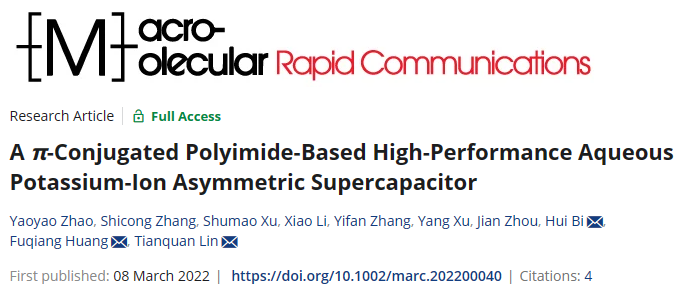
Aqueous asymmetric supercapacitor has captured widespread attention as a sustainable high-power energy resource. Organic electrode materials are appealing owing to their sustainability and high redox reactivity, but suffer from structural instability and low power density. Here the π-conjugated polyimide-based organic electrodes with different lengths of alkyl chains are explored to achieve high rate capability and long lifespan in an aqueous K+-ion electrolyte. The fabricated asymmetric supercapacitor exhibits high capacities of 107 mAh g−1 at 2 A g−1 and 67 mAh g−1 at 90 A g−1. A specific capacity of 65 mAh g−1 over 70% of the initial performance is obtained after 65 000 cycles. Molecular engineering of long alkyl chains in polyimide can reduce the degree of π-conjugation and spatially block the π-conjugated imide bond with limited redox activity but improved stability against chemical degradation. Further electrochemical quartz crystal microbalance, ex-situ Fourier transformed infrared spectroscopy, and X-ray photoelectron spectroscopy characterizations reveal the pseudocapacitance behavior originating from the π-conjugated polyimide-based redox reaction with potassium ions and hydrated potassium ions. A promising polyimide-based polymer with extended π-conjugated system for high-performance asymmetric supercapacitor is showcased.
Link:https://doi.org/10.1002/marc.202200040